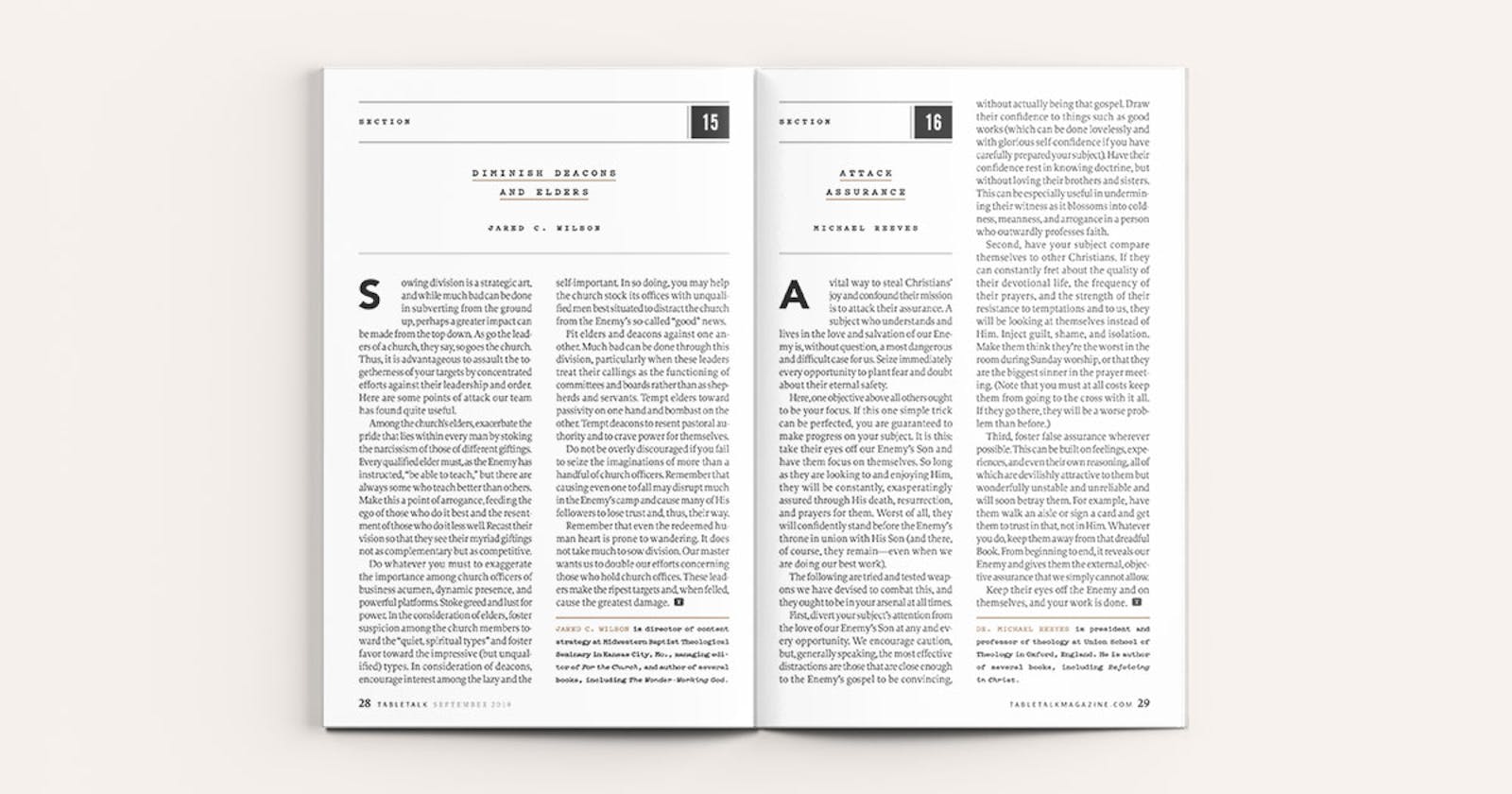
Request your free, three-month trial to Tabletalk magazine. You’ll receive the print issue monthly and gain immediate digital access to decades of archives. This trial is risk-free. No credit card required.
Try Tabletalk NowAlready receive Tabletalk magazine every month?
Verify your email address to gain unlimited access.
A vital way to steal Christians’ joy and confound their mission is to attack their assurance. A subject who understands and lives in the love and salvation of our Enemy is, without question, a most dangerous and difficult case for us. Seize immediately every opportunity to plant fear and doubt about their eternal safety.
Here, one objective above all others ought to be your focus. If this one simple trick can be perfected, you are guaranteed to make progress on your subject. It is this: take their eyes off our Enemy’s Son and have them focus on themselves. So long as they are looking to and enjoying Him, they will be constantly, exasperatingly assured through His death, resurrection, and prayers for them. Worst of all, they will confidently stand before the Enemy’s throne in union with His Son (and there, of course, they remain—even when we are doing our best work).
The following are tried and tested weapons we have devised to combat this, and they ought to be in your arsenal at all times.
First, divert your subject’s attention from the love of our Enemy’s Son at any and every opportunity. We encourage caution, but, generally speaking, the most effective distractions are those that are close enough to the Enemy’s gospel to be convincing, without actually being that gospel. Draw their confidence to things such as good works (which can be done lovelessly and with glorious self-confidence if you have carefully prepared your subject). Have their confidence rest in knowing doctrine, but without loving their brothers and sisters. This can be especially useful in undermining their witness as it blossoms into coldness, meanness, and arrogance in a person who outwardly professes faith.

Second, have your subject compare themselves to other Christians. If they can constantly fret about the quality of their devotional life, the frequency of their prayers, and the strength of their resistance to temptations and to us, they will be looking at themselves instead of Him. Inject guilt, shame, and isolation. Make them think they’re the worst in the room during Sunday worship, or that they are the biggest sinner in the prayer meeting. (Note that you must at all costs keep them from going to the cross with it all. If they go there, they will be a worse problem than before.)
Third, foster false assurance wherever possible. This can be built on feelings, experiences, and even their own reasoning, all of which are devilishly attractive to them but wonderfully unstable and unreliable and will soon betray them. For example, have them walk an aisle or sign a card and get them to trust in that, not in Him. Whatever you do, keep them away from that dreadful Book. From beginning to end, it reveals our Enemy and gives them the external, objective assurance that we simply cannot allow.
Keep their eyes off the Enemy and on themselves, and your work is done.
